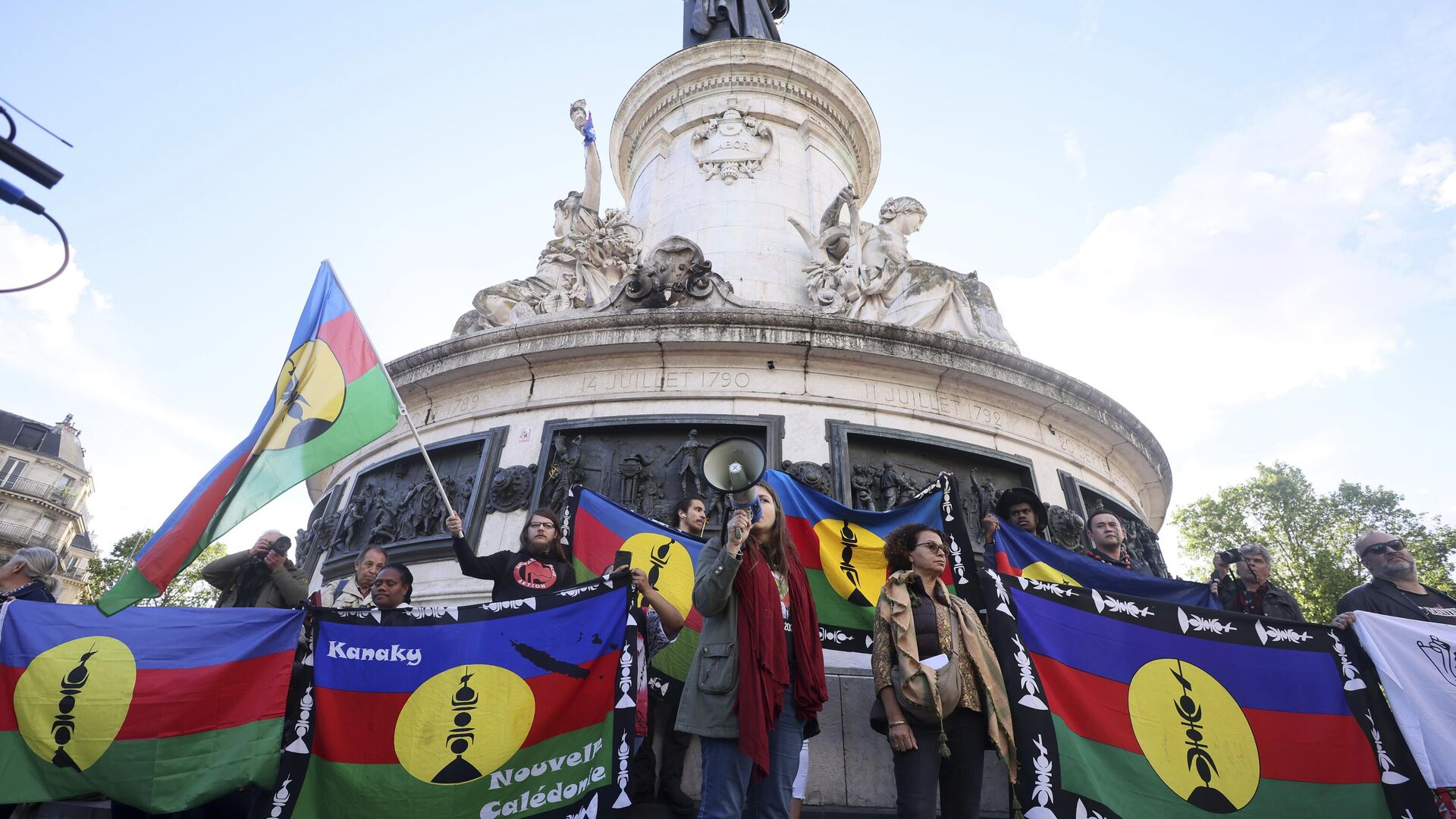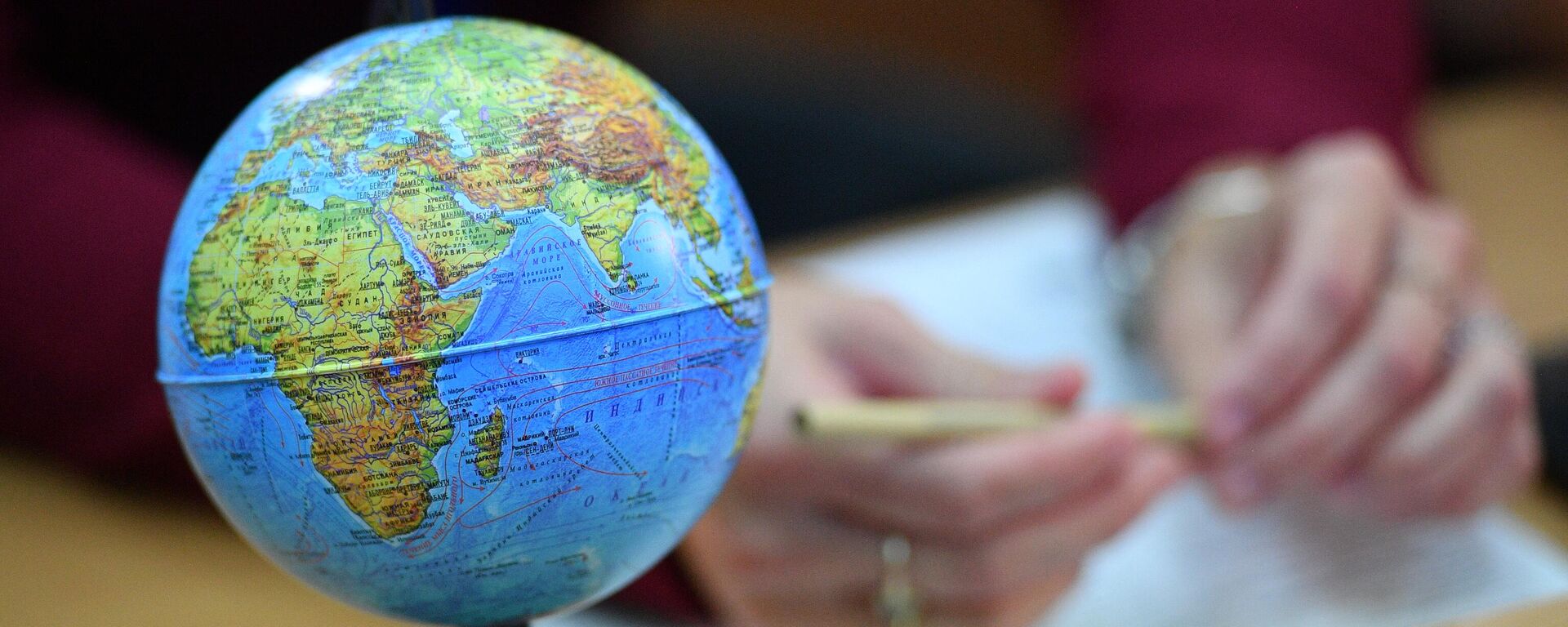https://en.sputniknews.africa/20250215/new-caledonias-independence-debate-reparations-global-ties-and-relations-with-france-1070669434.html
New Caledonia’s Independence Debate: Reparations, Global Ties, and Relations With France
New Caledonia’s Independence Debate: Reparations, Global Ties, and Relations With France
Sputnik Africa
New Caledonia became a French colony in 1853 when Admiral Febvrier Despointes claimed it for France, partly to counter British influence and establish a penal... 15.02.2025, Sputnik Africa
2025-02-15T15:09+0100
2025-02-15T15:09+0100
2025-02-15T15:09+0100
opinion
new caledonia
france
africa in details
emmanuel macron
united nations (un)
africa
non-aligned movement
pacific ocean
colonialism
https://cdn1.img.sputniknews.africa/img/07e8/05/13/1066618556_0:161:3070:1888_1920x0_80_0_0_8977d7a8cfa1e3633d9e3b2dcd8c1b00.jpg
Reparations are recognized within various United Nations mechanisms, making them a legitimate avenue for discussion, Mickael Forrest, a member of the New Caledonian government and the Kanak and Socialist National Liberation Front (FLNKS), told Sputnik Africa.However, he emphasized that, at present, this is not a priority for the independence movement. Instead, the focus remains on addressing pressing social and environmental challenges. Nonetheless, he did not rule out revisiting the issue in the future, particularly as the territory grapples with the long-term effects of colonial rule.Strengthening Ties With the Global SouthNew Caledonia has also been looking beyond its relationship with France, particularly toward Africa. Since 2024, it has renewed ties with countries like Benin and Burkina Faso, seeking to learn from their experiences in breaking free from colonial structures. According to Forrest, this outreach was undertaken “to get a tangible sense of things” and understand how these nations transitioned from a dominant-dominated dynamic.This engagement is not new—FLNKS has been an observer member of the Non-Aligned Movement since 1986 and has maintained contacts with African political movements such as the Polisario Front, Algeria, and South Africa.Relations With France: A Cautious ApproachDespite ongoing negotiations with the French government regarding New Caledonia’s political future, Forrest remains skeptical of President Emmanuel Macron’s role in the process. He recalled that Macron once described colonization as a “crime against humanity” but argued that the French leader ultimately serves the interests of financial elites.Tensions have also been heightened by legal disputes, particularly regarding the fate of prisoners involved in recent political unrest. The transfer of judicial cases from Noumea to Paris, confirmed by the Court of Cassation, has reinforced concerns about what Forrest described as “colonial justice.” This move, he argued, underscores the enduring power imbalances between New Caledonia and its governing state.Indigenous Kanak people and pro-independence movements, particularly the FLNKS, have long sought self-determination, leading to violent conflicts in the 1980s. The Matignon Accords (1988) and Nouméa Accord (1998) aimed to resolve tensions by granting more autonomy and holding referendums on independence.Between 2018 and 2021, three referendums were conducted, with mixed results and controversy over voter turnout and fairness.
https://en.sputniknews.africa/20230526/ongoing-struggle-for-self-determination-international-week-of-non-self-governing-territories-1059491938.html
new caledonia
france
africa
pacific ocean
Sputnik Africa
feedback@sputniknews.com
+74956456601
MIA „Rossiya Segodnya“
2025
Christina Glazkova
https://cdn1.img.sputniknews.africa/img/07e7/0b/07/1063380906_0:0:673:674_100x100_80_0_0_79628b4d0cd9f29291a57aa13bbf9e7a.jpg
Christina Glazkova
https://cdn1.img.sputniknews.africa/img/07e7/0b/07/1063380906_0:0:673:674_100x100_80_0_0_79628b4d0cd9f29291a57aa13bbf9e7a.jpg
News
en_EN
Sputnik Africa
feedback@sputniknews.com
+74956456601
MIA „Rossiya Segodnya“
Sputnik Africa
feedback@sputniknews.com
+74956456601
MIA „Rossiya Segodnya“
Christina Glazkova
https://cdn1.img.sputniknews.africa/img/07e7/0b/07/1063380906_0:0:673:674_100x100_80_0_0_79628b4d0cd9f29291a57aa13bbf9e7a.jpg
new caledonia, france, africa in details, emmanuel macron, united nations (un), africa, non-aligned movement, pacific ocean, colonialism, independence, global south, cooperation
new caledonia, france, africa in details, emmanuel macron, united nations (un), africa, non-aligned movement, pacific ocean, colonialism, independence, global south, cooperation
New Caledonia’s Independence Debate: Reparations, Global Ties, and Relations With France
Christina Glazkova
Writer / Editor
New Caledonia became a French colony in 1853 when Admiral Febvrier Despointes claimed it for France, partly to counter British influence and establish a penal colony. The discovery of nickel deposits later made it economically valuable.
Reparations are recognized within various United Nations mechanisms, making them a legitimate avenue for discussion, Mickael Forrest, a member of the New Caledonian government and the Kanak and Socialist National Liberation Front (FLNKS), told Sputnik Africa.
However, he emphasized that, at present, this is not a priority for the
independence movement. Instead, the focus remains on addressing pressing social and environmental challenges. Nonetheless, he did not rule out revisiting the issue in the future, particularly as the territory grapples with the long-term effects of colonial rule.
Strengthening Ties With the Global South
New Caledonia has also been looking beyond its relationship with France, particularly toward Africa. Since 2024, it has renewed ties with countries like
Benin and Burkina Faso, seeking to learn from their experiences in breaking free from colonial structures. According to Forrest, this outreach was undertaken “to get a tangible sense of things” and understand how these nations transitioned from a dominant-dominated dynamic.
This engagement is not new—FLNKS has been an observer member of the Non-Aligned Movement since 1986 and has maintained contacts with African political movements such as the
Polisario Front, Algeria, and South Africa.
Relations With France: A Cautious Approach
Despite ongoing negotiations with the French government regarding New Caledonia’s political future, Forrest remains skeptical of President Emmanuel
Macron’s role in the process. He recalled that Macron once described colonization as a “crime against humanity” but argued that the French leader ultimately serves the interests of financial elites.
"Macron remains Macron. [...] It's clear that he is a child molded by financial powers, particularly the various banks. For us, it's about engaging in dialogue with the government, not the head of state," he explained.
Tensions have also been heightened by legal disputes, particularly regarding the fate of prisoners involved in recent
political unrest. The transfer of judicial cases from Noumea to Paris, confirmed by the Court of Cassation, has reinforced concerns about what Forrest described as “colonial justice.” This move, he argued, underscores the enduring power imbalances between New Caledonia and its governing state.
Indigenous Kanak people and pro-independence movements, particularly the FLNKS, have long sought self-determination, leading to violent conflicts in the 1980s. The Matignon Accords (1988) and Nouméa Accord (1998) aimed to resolve tensions by granting more autonomy and holding referendums on independence.
Between 2018 and 2021, three referendums were conducted, with mixed results and controversy over voter turnout and fairness.



